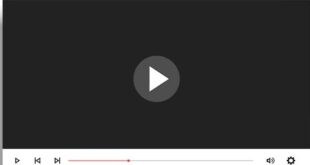
I was taking a break from painting the walls of the home I’m renovating with my fiancé when I heard about the death of my friend, Mohamed Salama.
He is one of five journalists killed in Gaza last week, after Israel unleashed one missile, then another moments later as rescue crews arrived. Living in the occupied West Bank, I can only watch as my friends and colleagues – journalists like myself – are being killed by Israel, one by one.
I have lived in Ramallah all my life, which is in the occupied West Bank.
For all of my 26 years, I’ve seen apartheid first hand – segregated roads, ghettoisation of Palestinian towns, settler violence, and constant Israeli military raids.
But Ramallah itself seemed to be a place where one can be slightly hopeful for a future, especially as a naïve kid.
At 18, I went to law school, thinking I would be a corporate lawyer. But in 2019, while I was at university, everything changed.

I would wake up and find that a new friend or classmate had been taken by the Israeli military in the early hours – like one for selling falafel, or another for making a bookstand. They were disappearing, then we would hear from their families and lawyers about the raids of their homes.
I felt hopeless about what was happening, so I started talking about my friends. I wrote about them on social media and shared their stories.
From there, I got an internship with an NGO where I could continue this work. I eventually graduated and finished my university studies in 2022. And somewhere in that journey, I realised that I had become a journalist.
I’m driven by a need to share the truth and it was through this work that I met my partner – who I would prefer not to name, since he is at risk of being targeted for being a journalist.
He had more experience than me and we spent more time together. He took me with him out in the field and taught me to photograph.
We would drive around the occupied West Bank together, going to communities in danger of forced displacement and hearing their stories. On our way back home, we would talk about how each story changed something inside us, and what we want to do with what we just witnessed.
I covered stories about settler expansion, how raids affected children in those areas, and farmers fighting for their lands.
While undertaking this work, I’ve been stopped at military checkpoints for long hours, had stun grenades thrown at me, been threatened by soldiers, and had Israeli settlers shoot at me – all for the work that I do showing the truth.

My relationship with my partner grew because of the intensity of the stories we were covering and the grief we felt together – especially since October 2023. It was actually during the ceasefire earlier this year that we got engaged.
Our days were hectic, tiring, and filled with heartbreaking stories that had us thinking about life, future, and our dreams.
Follow Metro on WhatsApp to be the first to get all the latest news

Metro’s on Whatsapp! Join our community for breaking news and juicy stories.
Today, my fiancé feels guilty for bringing me into this profession and I completely understand why. We chose jobs where Israel paints a target on our backs, but we cannot remain silent.
Throughout the recent escalation of war, I have connected with other journalists on the ground in Gaza. Whether in the West Bank or Gaza, we share, grieve, love, and know what is at risk together.

When I met Mohammed Salama while working on a story about his engagement to another journalist in the rubble in November last year, we connected on a deeper level so quickly. He was also engaged to a journalist and wanted to build a house with her, but he felt fear for his life and wanted his fiancée to have safety.
We talked about what we would put on the walls of our houses – the ones I was just painting in my own home. He was my age and at the same place in life, but we were separated by occupation, war, walls, and siege.
But just like in university – one-by-one – journalists were being killed. There was Hossam Shabat in March this year in a targeted strike on his vehicle. Then Anas al-Sharif earlier in August in an Israeli airstrike.
Now, Mohammed last week – along with Mariam Abu Daqqa, Hussam al-Masri, Ahmed Abu Aziz, and Moaz Abu Taha.

The day these five journalists were killed, I know what Mohammed’s fiancée must have felt because I have felt it time and time again. I want people to know that Mohammed mattered – to his colleagues, the profession, and to Palestine.
But each person killed matters. They matter as journalists and as humans.
Unfortunately, the suffering continues and the voices to expose that suffering are being targeted.
Al Jazeera reports an ever-growing tally of more than 270 journalists killed since October 2023. In fact, according to the Committee to Protect Journalists (CPJ), this period is the deadliest for journalists since the organisation began recording this data over 30 years ago.
In the West Bank and in Gaza, journalists are being arrested, shot, and bombed. They are showing the world the truth and being murdered for it.
Journalists give people around the world a choice to care, which is why Israel targets us. It tries to take that choice from you so you don’t see or hear what is really happening.
Journalists in Gaza are giving their lives to give you a view into our experience. You owe it to them – to us – to listen.
Do you have a story you’d like to share? Get in touch by emailing James.Besanvalle@metro.co.uk.
Share your views in the comments below.
